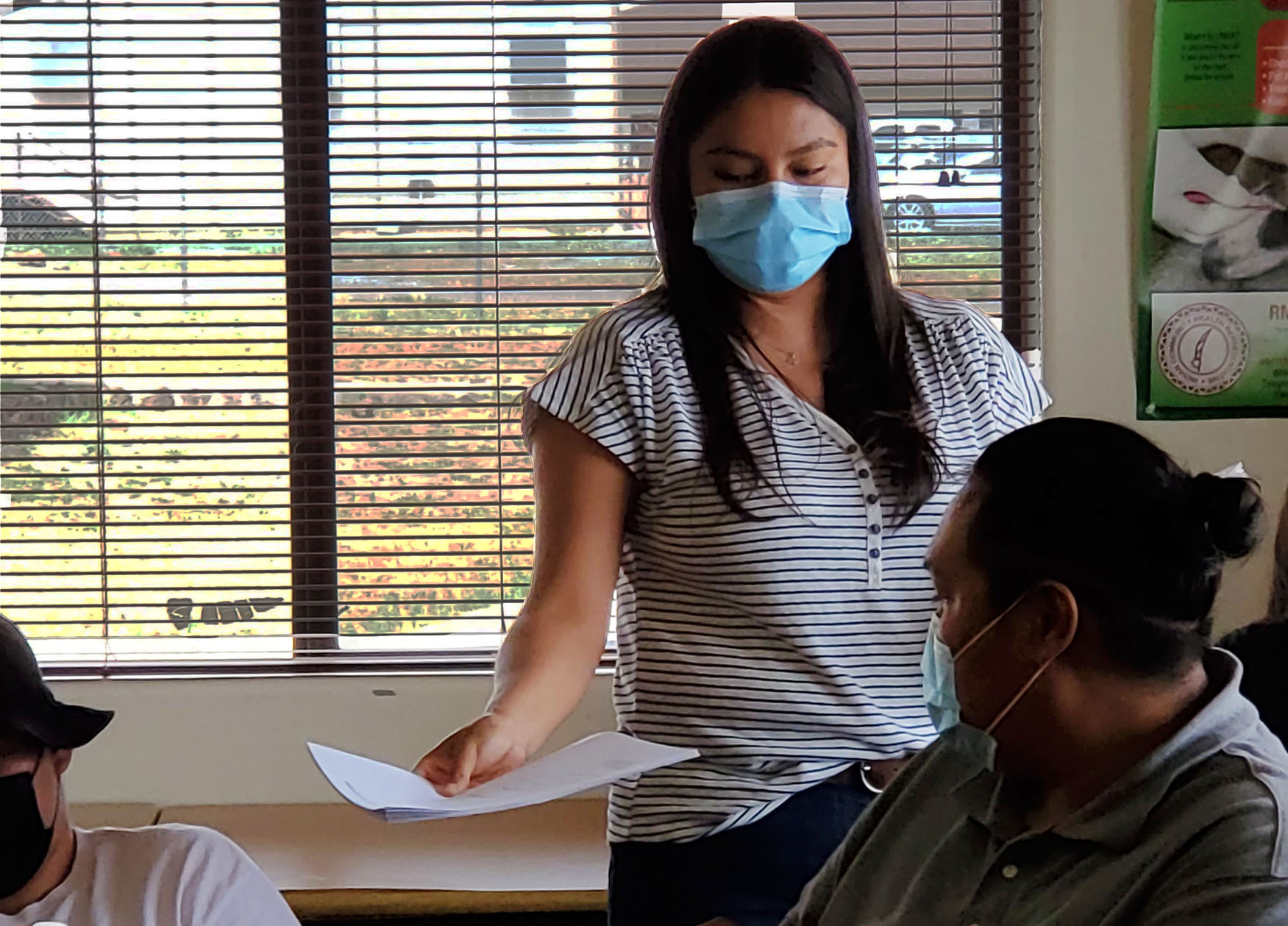Master of Public Health, Indigenous Health Track: An innovation in training future health equity leaders

In 2017, Northern Arizona University’s Center for Health Equity Research (CHER) began their collaboration with Diné College, a Tribal College of the Navajo Nation, Navajo Native American Research Center for Health (NARCH) Partnership.
Seeing an urgent need in the community to strengthen Indigenous public health, Nicolette Teufel-Shone, associate director of CHER and an NAU alum, working in collaboration with the Navajo NARCH Partnership, saw that one way to address Indigenous health disparities was to build the public health workforce through education and experiential learning, creating culturally informed services and programs.
To do that, the Navajo NARCH Partnership joined with the newly formed NAU Master of Public Health, Health Promotion to create the Indigenous Health Track. Four years later, the innovative program is still only one of about five such programs offered in universities nationally.
“This educational proposal aligned with the aims of the Navajo NARCH Partnership to build an educational pathway from high school to a Master of Public Health for Native Americans interested in gaining degrees in public health,” Teufel-Shone said of the degree program.
The goal of NAU’s public health master’s is to prepare public health professionals through hands-on, learner-centered educational strategies to address the health needs of diverse, underserved communities.
The Master of Public Health in Health Promotion, Indigenous Health Track was specifically designed for students interested in managing public health programs within Native American communities. In the Indigenous Health Track, students graduate with the ability to plan, implement, and assess public health programs while considering cultural attributes of the tribal communities they serve. Currently, there are 13 students in the Indigenous Health Track, some hailing from the Navajo Nation, San Carlos Apache Tribe, Hopi Tribe and Lakota Nations.
“I am grateful to get to meet and learn from native students each year and to have their perspectives and experience benefitting the entire class,” said Brettania O’Connor, Master of Public Health program director and assistant clinical professor in the Department of Health Sciences.
After graduation, Indigenous Health Track alum often have secured positions as research coordinators, program managers, health educators, program coordinators, and surveillance support and epidemiology. They have also worked with Coconino County, and also CHER. Graduates students in the program also plan to enter public health doctoral programs, or medical programs.
“All MPH-Health Promotion, Indigenous Health Track graduates have found employment in programs or institutions that serve Native American people, so our graduates’ skills are much needed in the public health work forces,” Teufel-Shone said.
Marissa Tutt, a 2020 graduate from the Master of Public Health, Indigenous Health Track, now works as a research coordinator for CHER and works primarily with Native American communities in Arizona, New Mexico and Montana.
“From COVID-19 vaccine education to utilizing motivational interviewing for oral health, it’s been an amazing opportunity to learn and grow,” Tutt said.
She said she learned of the Indigenous Health Track as an undergraduate from one of her NAU professors who recommended the program to her.
“There are many Indigenous/Native American public health professionals out there who want to further their public health training, to not only better their community but to also make an impact in this world,” Tutt said. “This program allows them to do so. This program creates amazing Indigenous public health professionals who are ready to return home or make an impact in Western society.”
Tutt said from her master’s studies, she uses Indigenous determinants of health, Indigenous research frameworks, and health communication in her current work.
“These concepts play an important role in my position,” she said. “They, and the constant learning each day, have helped me become a better health professional, and they have allowed me the opportunity to share my knowledge with other Indigenous communities.”
Requirements for NAU’s Master of Public Health, Indigenous Health Track

The NAU Master of Public Health in Health Promotion, Indigenous Health Track includes applied practice experience in public health with specific coursework in Indigenous health. The Indigenous Health Track program can be completed in about two years, or longer at a part-time pace. Most courses are offered between 4–9 p.m. to accommodate people who work full time.
“Many students bring considerable lived experience to the MPH-Health Promotion, Indigenous Health Track,” Teufel-Shone said. “Guiding them to see and understand how their experiential knowledge can be integrated with public health education yields graduates well equipped to serve Native communities.”
The program includes 10 core courses and a three-credit applied practice experience at a public health agency or other research experience.
The core courses include topics such as biostatistics, epidemiology, social and structural determinants of health, behavior change counseling, environmental health, health policy and management, and research methods and program evaluation.
Core coursework in health promotion includes topics in chronic disease epidemiology and prevention, innovations in healthcare and public health, and intervention mapping. Core courses in the Indigenous Health Track address topics such as Indian health and healthcare systems, resilience, leadership and governance on tribal lands, and community based participatory research to improve health equity.
In addition to the Master of Public Health, Health Promotion, Indigenous Health Track, NAU offers an online Master of Public Health–Health Promotion, a Master of Public Health, Nutrition, and a Public Health Graduate Certificate.
Applicants must have a bachelor’s degree, though it need not be in public health. The only pre-requisite requirement is an introductory or basic statistics course. The priority deadline to be considered for the fall 2022 semester is January 15. The graduate certificate program allows for summer, fall or spring semester admission.
